Graham Reid | | 6 min read
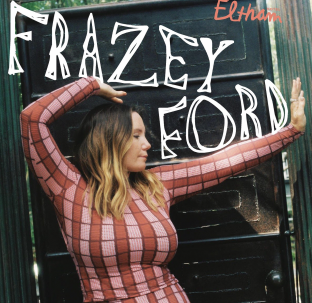
This is where singer-songwriter Frazey Ford, who came to attention with the Canadian folk-country band The Be Good Tanyas in the early 2000s but has been on a soul music-inspired solo career for more than a decade, retreats “to decompress”.
Two years ago the downtime became enforced. Her album U kin B the Sun was released two weeks before Covid-19 hit: “Five Canadian dates, then everything stopped”.
So she went back to Gabriola, an island which is something of a haven for creative people.
“I'd just finished the album and wasn't in the mood to work musically because I like to have space between my albums. And I ended up getting into designing clothing and painting and ceramics. I was making lamps and lighting, just following my creativity in other areas.
“I have a lot of different creative outlets so I was just increasing my knowledge. I don't like to be bored so it helped me to have a focus, and I was doing a lot of sewing and pattern drafting and designing.
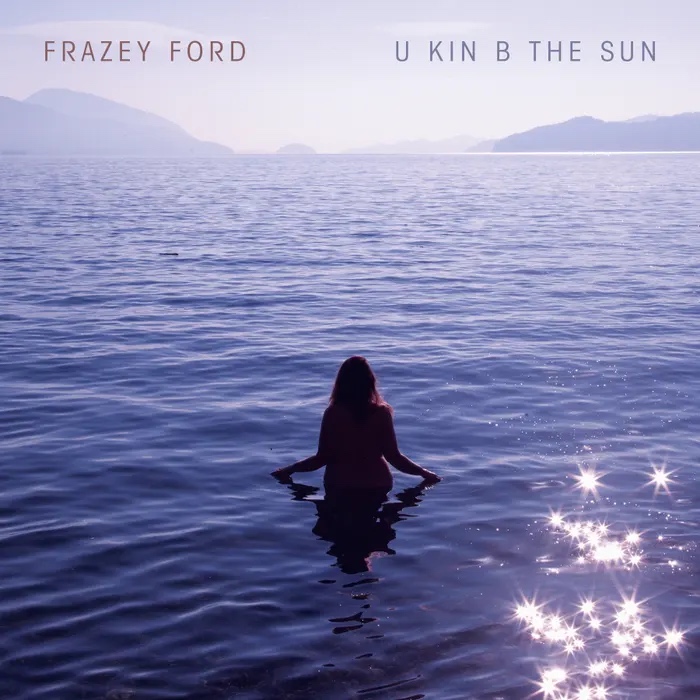 “But then after that I ended up getting into ceramics. But I'd been doing a lot of those things for a long while.”
“But then after that I ended up getting into ceramics. But I'd been doing a lot of those things for a long while.”
And these things somehow complement the music, maybe feed into it? Or is it just therapeutic?
“Music as a creative outlet has more pressure by being public, so I like to reclaim my creativity and lose the sense of an audience for a while. If I'm designing a pair of pants, no one cares,” she laughs.
“Whatever I explore, those risks, I can take back to music again. I think it allows me to have breathing room and when I come back to music it feels fresh rather than, 'Oh I've been doing this for so long'.
“It's something really natural to me.
“I think of people like Joni Mitchell who would paint for a while, it makes a lot of sense to me. You can't just keeping putting things out in songwriting where you are digesting these big pieces of your life. It doesn't come from nowhere and I can't just can't keep doing that.
“I like making something tactile because you can see when you've spent eight hours working on something. In songwriting you can spend eight hours and not use any of it.
“I sometimes wonder why I chose songwriting, it's really hard. But when it comes together or you've written a line which resonates with people then you're thankful for the energy you put in.”
So Ford found absence of an audience meant a lack of artistic completion.
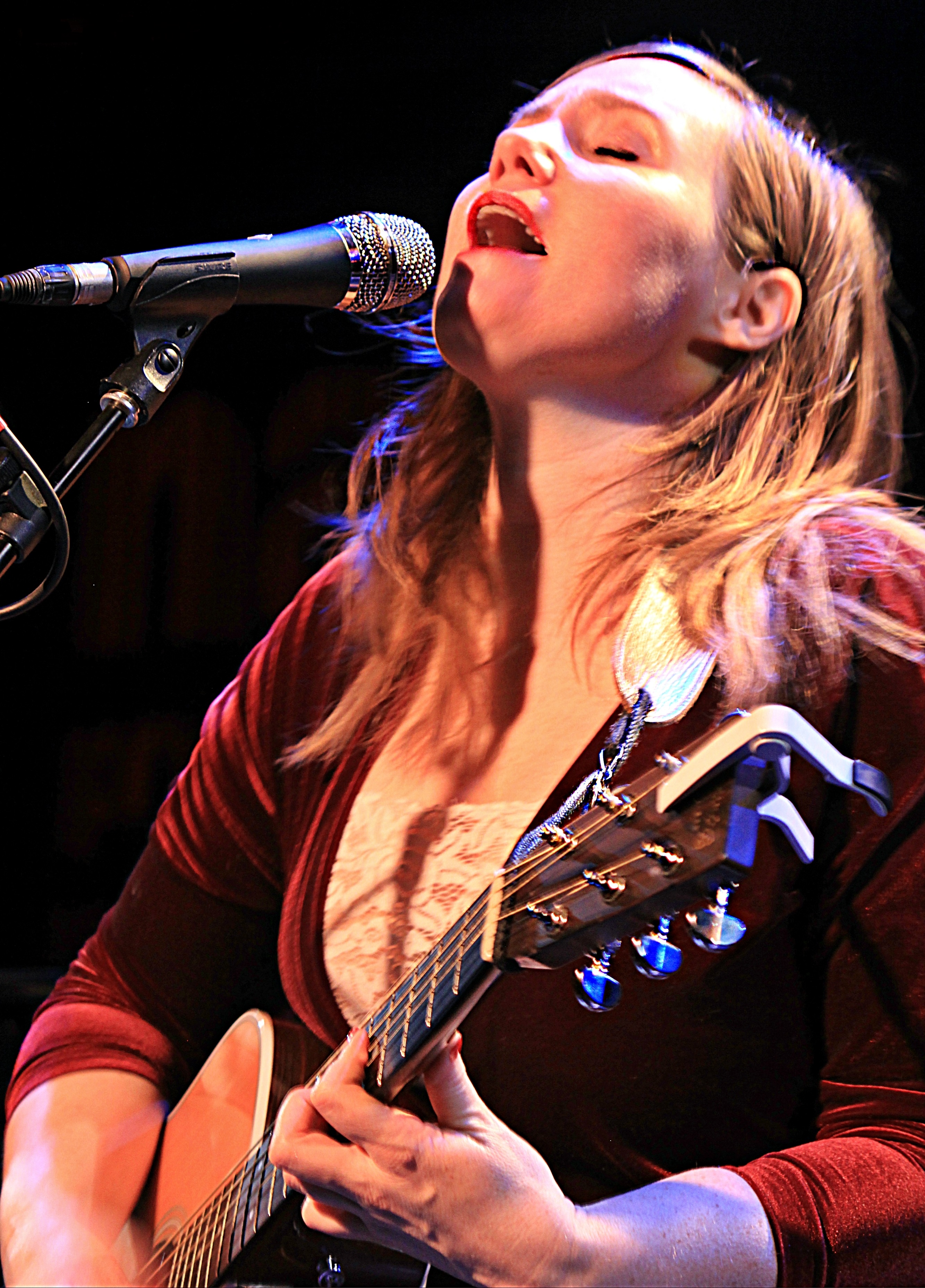 “I'm not a road dog who needs to tour, but not getting to play an album made me realise how important that is. Taking music into a room of people is when the album settles and becomes what it's meant to be. Often I don't fully understand the sense of a song until I'm playing it to people and having that communion.
“I'm not a road dog who needs to tour, but not getting to play an album made me realise how important that is. Taking music into a room of people is when the album settles and becomes what it's meant to be. Often I don't fully understand the sense of a song until I'm playing it to people and having that communion.
“To have that denied meant part of the process was missing.”
Ford notes The Be Good Tanyas shot to attention rapidly in the early 2000s and toured relentlessly, but their folk/country style wasn't what she wanted to play exclusively.
Born in Toronto in 1973 to parents who had fled to Canada during the Vietnam era – her father an activist wanted by the FBI, her mother a free spirit who took Frazey and her sister to Nepal – she grew up hearing music all the time from her “hippie family”
She heard Otis Redding's Greatest Hits at 11 and “it struck me intensely how beautiful that [soulful] sound was”.
Later she discovered Memphis soul singer Al Green and “it changed the course of my musical personality and direction”.
“I even had an Al Green/soul covers band. But the band that took off [The Be Good Tanyas] had that country influence. However Al Green had always been there in the background.”
Green's music bridged country and soul so in her solo career, starting with her Obadiah album in 2010, she moved towards it. Her sophomore album Indian Ocean had her working with Green's band in Memphis.
Ford channeled soul and art-pop into the highly personal U kin B the Sun – likened to Joni Mitchell sung by Macy Gray – and although many songs bounce off natural imagery (no surprise considering where she lives) another side comes through on The Kids Are Having None Of It. It echoes Bob Dylan's 1965 injunction to the older generation to “get out of the new world if you can't lend a hand”.
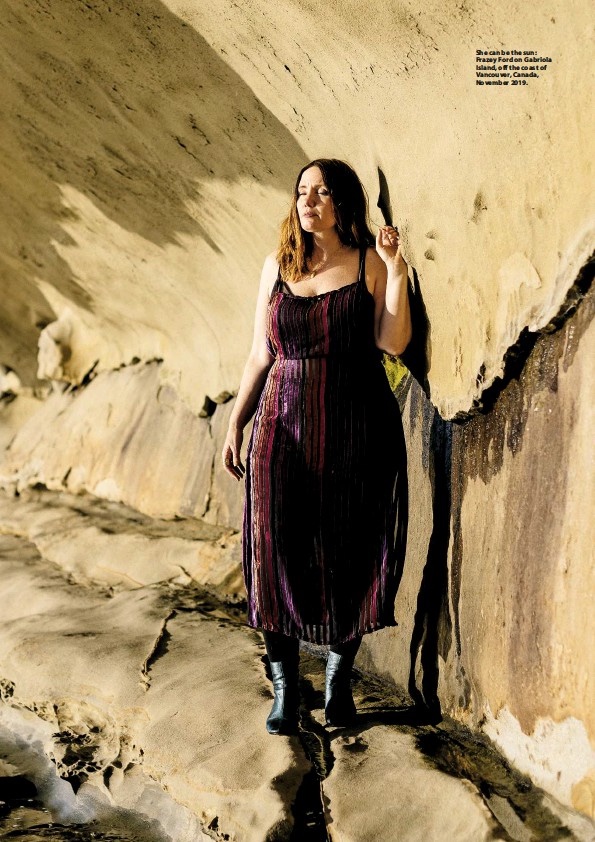 “Yeah, the generation I'm speaking about is my [19-year old] son's generation talking to those before them. They are watching them doing absolutely nothing for this situation that is being handed to them. They don't have the luxury of living through climate change, for them it's just appalling to witness these generations carrying on with business as usual.
“Yeah, the generation I'm speaking about is my [19-year old] son's generation talking to those before them. They are watching them doing absolutely nothing for this situation that is being handed to them. They don't have the luxury of living through climate change, for them it's just appalling to witness these generations carrying on with business as usual.
“t's ironic the Boomer generation feels they've made all these changes yet is sitting on their laurels. They could really be effective now when they have all this capital and privilege.
“That's very frustrating to my son's generation, [the Boomer's] narcissism about everything they've accomplished but won't take their retirement investment out of oil companies.
“It's not like nothing was accomplished but there is this real divide, the Boomers lived through an affluent era but that is far gone and today is such a different reality for every generation below them.
“I see the movements coming from the younger generation but they see it not being backed up by the older generations because they don't have the privilege to use. They are empowered but have no power.
“They are terrified, the amount of mental health issues, not having a future, the condescension towards them . . .
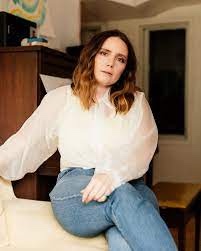 “Okay. That's a big mouthful, she laughs, “but 'cmon Boomers, go for it if you care about your grandkids. With all that privilege and power you could actually do something.”
“Okay. That's a big mouthful, she laughs, “but 'cmon Boomers, go for it if you care about your grandkids. With all that privilege and power you could actually do something.”
So let's talk about other songs on the album, You And Me is beautifully languid soul yet there's also the abrupt aspect where she tells the subject to put down their phone, a kind of juxtaposition between the spiritual world and the real world?
"What I'm getting at this modern thing and angst sexual/love angst happens through texting on a phone, there's the tension.
"That's only how I view it. But I'm of the belief that a song should be open to however the listener interprets it. A song is canvas for the listener's experience."
In a couple of places the idea of vulnerability is mentioned?
"Yes, I definitely see the album as quite vulnerable and more lyrically direct, more direct experience and direct conversations. I feel more vulnerable performing this album than any other I have done, but I also feel the world is quite vulnerable right now."
And on Hold It Down there is a reference to seeking the divine. Do you have a faith or a belief system?
"Not organised that anyone could pinpoint but creativity is a real search for the divine. That's something I feel a lot, I've always had a strong sense of spirituality.
That's something which seems to come through via the naturalistic imagery in the songs, something like that Wordsworth idea of pantheism, a spirit which rolls through all things?
"Oh, definitely. Yeah."
Although a wealth of internal and social material is available, Ford says songwriting hasn't become any easier over time: “It hasn't gotten any easier and I'm kind of glad it hasn't. I find it very hard and I always feel like a beginner, and I feel that's how its supposed to be.
“Sometimes songs can come really quickly but they tend to come quickly only when there has been labouring and crafting for a while. It always feels incredibly challenging to me.
“When I decide it's time to get into the writing cycle I try to be disciplined but it's kind of a light discipline because I am quite a perfectionist and I think if I am overly critical and expectant I will shut down.
“If I'm really not in the mood I won't force myself. I'll sit down for maybe four hours a few days a week but there's not a schedule.
“I have a lot of rituals that precede the writing, for example I do a lot of improvisation before I sit down and write.
“Songwriting is so elusive, I can be writing an album and it feels like I've got nowhere then in the last couple of months it all seems to come together out of nowhere.
“It is very elusive which is why I like to switch to making something tactile.”
So there's no home studio on Gabriola?
“Oh no, I'm the least gear-head musician ever, I don't care about that at all.”
But there is a pottery room.
.
Frazey Ford and band tour dates: San Fran, Wellington, October 12; Knox Church, Dunedin, October 13; Toitoi, Hawke's Bay Arts and Events Centre, Hastings, October 14; Tuning Fork, Auckland, October 15



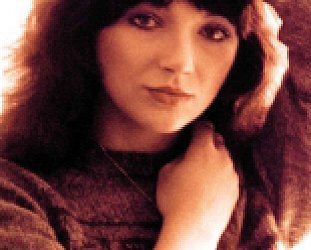

post a comment